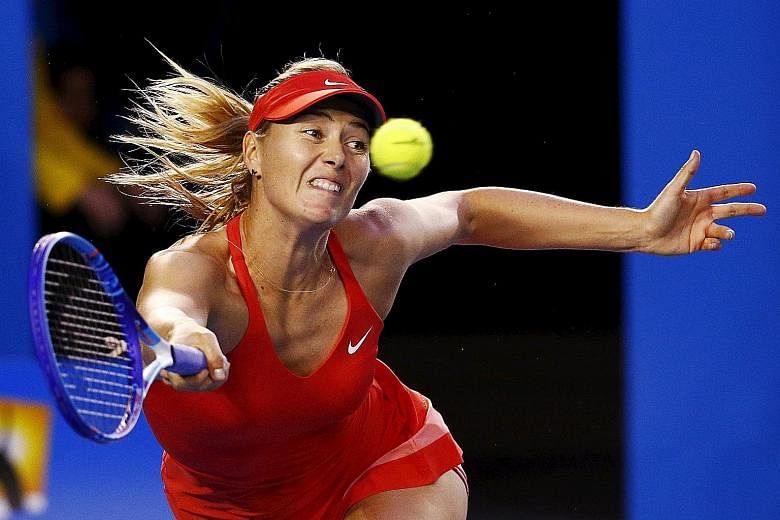LONDON • Maria Sharapova and her team were "reckless beyond description" in failing a drug test at the Australian Open, according to the World Anti-Doping Agency's (Wada) first president, Dick Pound.
Pound, who last year oversaw the Wada-commissioned independent review that led to Russia being banned from athletics for systemic doping, said the five-time Grand Slam winner had made a "big mistake" in continuing to take the banned substance meldonium after it was banned in January.
"You are taking something on a list. I am sorry, that is a big mistake - of course she should have known," said Pound, who was head of Wada from 1999 to 2007.
"She is taking something that is not generally permitted in her country of residence (the US) for medical purposes, so she says, so there must be a doctor following this," he told the BBC.
Wada had placed meldonium on its watch list last year. It then notified athletes at the end of September that the substance would be added to the banned list this year following further research that suggested it was being used to enhance performance.
"Anytime there is a change to the list, notice is given on 30 September prior to the change. You have October, November, December to get off what you are doing," said Pound. "All the tennis players were given notification of it and she has a medical team somewhere. That is reckless beyond description."
Pound, in London to speak at the Tackling Doping in Sport conference alongside current Wada president Craig Reedie, added that "a lot of people were taking (meldonium) for performance enhancing".
"Most of the drugs of choice for dopers were built for therapeutic reasons - like EPO and others. That was supposed to regenerate blood if you had cancer treatment or surgical intervention if you needed to increase blood supply," said Pound.
"Someone has said, 'Hmm, more oxygen in the blood? Hmm, very interesting. Let's see if we can use it for that purpose.'"
Wada said on Tuesday it would await the result of the International Tennis Federation's results' management process but that it reserved the right to appeal to the Court of Arbitration for Sport if it felt the sanction was too lenient.
The standard sanction for a first offence is four years under the Wada code, though that could be reduced to two years if Sharapova can prove she was not at fault.
Support came in an unlikely form from Sharapova's nemesis on the court, Serena Williams, the player she lost to on the day she failed the test at the Australian Open in January.
Williams said the Russian "showed a lot of courage" to take responsibility for her failed drug test.
The 21-time Major champion said she "hoped for the best" for the Russian in a press conference before playing her good friend Caroline Wozniacki in an exhibition at Madison Square Garden on Tuesday.
Yesterday, it emerged that another Russian - short-track speed skater Ekaterina Konstantinova, 20 - has tested positive for meldonium, the R-Sport news agency cited the head of Russia's skating union as saying. The news followed a warning by Russian sports minister Vitaly Mutko that more Russian athletes could test for the drug as it is popular among the country's athletes.
THE GUARDIAN

